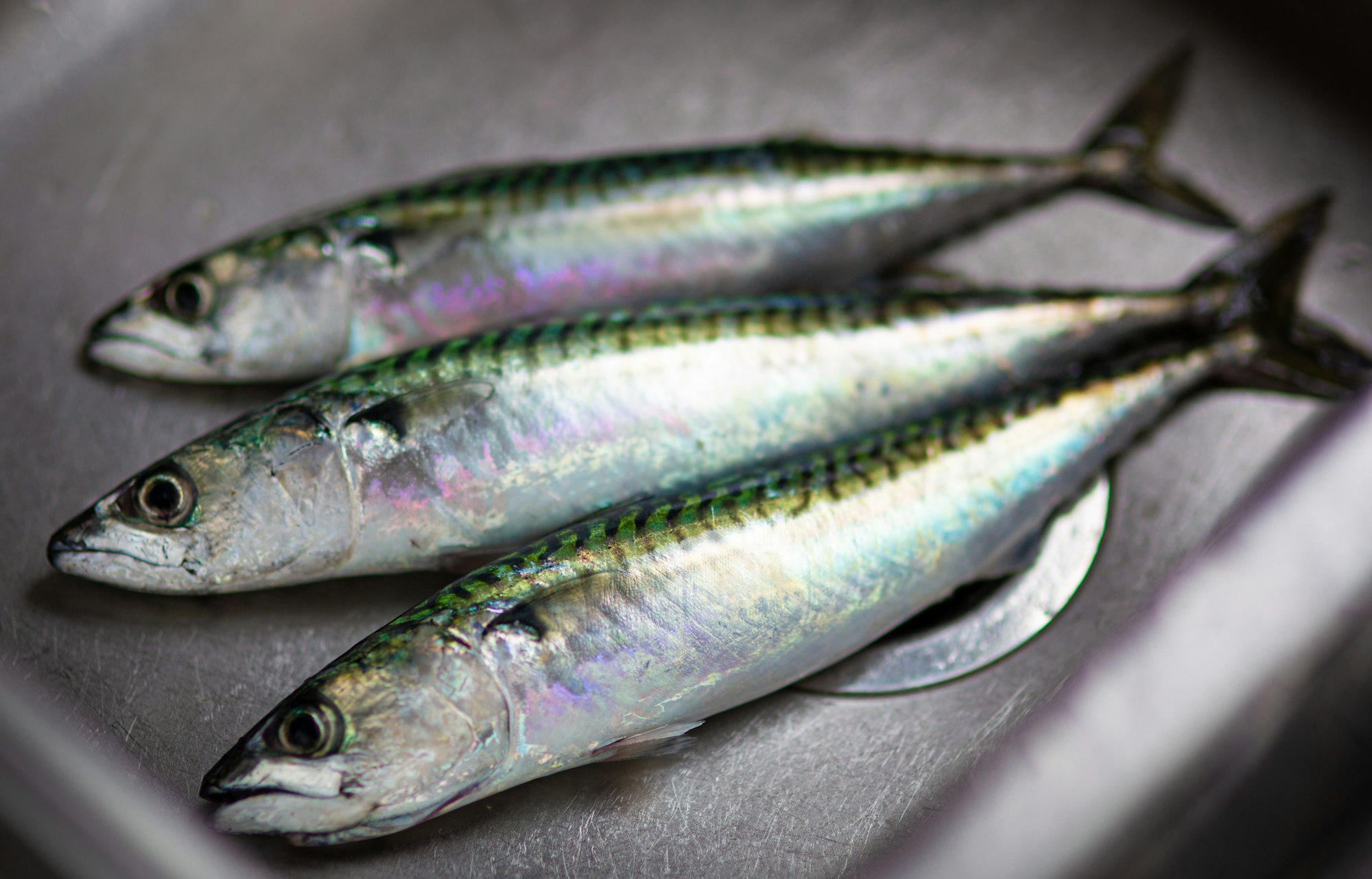When it comes to our beloved furry friends, their health and well-being are of utmost importance. As responsible pet owners, we want to ensure that our dogs receive a balanced and nutritious diet. In recent years, there has been a growing interest in incorporating sardines into dogs' diets. But can dogs eat sardines? In this article, we will explore the nutritional benefits of sardines for dogs, potential risks to consider, and provide you with practical recommendations to make an informed decision.
The Nutritional Value of Sardines
Sardines are small, oily fish that packs a nutritional punch for your dog. They are rich in essential nutrients, making them a valuable addition to your pet's diet. Here are some key nutritional components found in sardines:

Omega-3 Fatty Acids: Sardines are an excellent source of omega-3 fatty acids, specifically EPA (eicosapentaenoic acid) and DHA (docosahexaenoic acid). These fatty acids offer numerous health benefits, including supporting heart health, reducing inflammation, and promoting brain function.
Protein: Sardines are a great source of high-quality protein. Protein is essential for your dog's growth, muscle development, and overall health.
Minerals: Sardines contain extensive minerals such as calcium, phosphorus, and selenium. These minerals contribute to bone health, muscle function, and overall cell maintenance in your dog's body.
Vitamins: Sardines are rich in various vitamins, including vitamins B12, D, and various B vitamins. These vitamins are crucial for energy production, immune system function, and overall well-being.
Let’s discuss these nutritional aspects of sardines in brief:
Omega-3 Fatty Acids: A Boost for Your Dog's Health
Omega-3 fatty acids are essential for your dog's health, and sardines are an excellent natural source of these beneficial fats. Here's how omega-3 fatty acids found in sardines can benefit your furry friend:
Heart Health: Omega-3 fatty acids promote cardiovascular health by reducing inflammation and supporting healthy blood flow.
Joint Health: These fatty acids have anti-inflammatory properties that can alleviate joint pain and stiffness, making sardines beneficial for dogs with arthritis or other joint issues.
Skin and Coat Health: Omega-3 fatty acids help maintain healthy skin and a shiny coat. They can reduce dryness, itchiness, and flakiness, and may even help manage certain skin conditions in dogs.
Brain Development and Cognitive Function: Omega-3 fatty acids are vital for brain development in puppies and can support cognitive function in dogs of all ages. They may improve memory, learning, and overall mental acuity.
Protein-Rich Goodness in Sardines
Protein is an essential nutrient for your dog's overall health and well-being, and sardines offer a protein-rich option. Here's why the protein content in sardines is beneficial for your furry companion:
Muscle Development: Protein is crucial for building and repairing muscles. It supports your dog's growth, development, and overall muscle function.
Tissue Repair: Protein plays a vital role in tissue repair throughout your dog's body. It helps heal wounds, maintain organ health, and support the immune system.
Energy Production: Protein provides the necessary amino acids for energy production in your dog's body. It fuels various physiological processes and helps keep your pet active and energetic.
Including sardines in your dog's diet can provide them with a wholesome source of omega-3 fatty acids, high-quality protein, and other essential nutrients. However, it's influential to introduce sardines gradually and consider your dog's specific dietary needs. Consult with your veterinarian to determine the appropriate portion sizes and feeding frequency based on your dog's age, size, and overall health.
Essential Minerals and Vitamins
Sardines are not only rich in omega-3 fatty acids and protein but also contain a variety of essential minerals and vitamins that contribute to your dog's overall health. Here are some key minerals and vitamins found in sardines:

Calcium: Sardines are a good source of calcium, which is decisive for maintaining strong bones and teeth in dogs. It also plays a role in muscle function and nerve transmission.
Phosphorus: Sardines provide phosphorus, which works in conjunction with calcium to support bone health. It is also involved in energy metabolism and cellular function.
Potassium: Sardines contain potassium, an electrolyte that helps regulate fluid balance, muscle contractions, and nerve function in dogs.
Selenium: Sardines are a natural source of selenium, an antioxidant mineral that supports the immune system and helps protect cells from damage.
Vitamin B12: Sardines are rich in vitamin B12, which is essential for healthy nerve function, DNA synthesis, and the production of red blood cells in dogs.
Vitamin D: Sardines contain vitamin D, which plays a crucial role in calcium absorption and bone health. It also supports the immune system and overall well-being.
Including sardines in your dog's diet can provide them with these essential minerals and vitamins, contributing to their overall nutritional needs.
Watch Out for Sodium Levels
While sardines offer numerous health benefits, it's prominent to be mindful of their sodium content. High sodium levels can be detrimental to dogs, especially those with certain health conditions like kidney or heart problems. Here are some tips to keep in mind regarding sodium levels in sardines:
Opt for Water or Olive Oil: Choose sardines that are packed in water or olive oil rather than those preserved in salt water. This helps reduce the sodium content.
Check Labels: Read the labels carefully when purchasing canned sardines for your dog. Look for low-sodium options or brands that specifically mention reduced sodium levels.
Moderation is Key: While sardines can be a healthy addition to your dog's diet, it's necessary to feed them in moderation. Too much sodium can lead to excessive thirst, increased blood pressure, and other health issues in dogs.
Easing fear at the vet: If your dog has specific dietary requirements or health concerns, it's best to consult with your veterinarian. They can provide personalized guidance on the appropriate amount of sardines to include in your dog's diet.
By being mindful of the sodium levels and incorporating sardines in moderation, you can safely provide your dog with the nutritional benefits they offer.
Potential Benefits of Sardines for Dogs
1. Sardines as a Source of Healthy Fats: The omega-3 fatty acids found in sardines contribute to your dog's overall well-being. These healthy fats support a healthy immune system, reduce inflammation, and may help alleviate symptoms associated with allergies, arthritis, and other inflammatory conditions.
2. Improving Skin and Coat Health: The omega-3 fatty acids in sardines can enhance your dog's skin and coat health. They can help reduce dryness, itchiness, and flakiness, promoting a lustrous coat and reducing the risk of skin infections.
3. Promoting Joint Health and Reducing Inflammation: Sardines' anti-inflammatory properties can benefit good family dogs with joint issues, such as arthritis. The omega-3 fatty acids may help reduce joint pain and inflammation, improving your dog's mobility and overall comfort.
4. Boosting Cognitive Function: Omega-3 fatty acids play a crucial role in brain development and function. Including sardines in your dog's diet may support cognitive health, aiding memory, learning, and overall mental acuity.
Risks and Precautions to Consider
While sardines offer numerous health benefits, there are a few risks and precautions to keep in mind before incorporating them into your dog's diet.
1. Mercury Levels in Sardines
Sardines are a small fish that typically has low mercury levels. However, it's important to source high-quality sardines and avoid those known to have higher mercury levels. Consult with your veterinarian to ensure safe and appropriate sardine options for your dog.
2. Potential Allergies and Digestive Issues
Like any new food, some dogs may have allergies or sensitivities to sardines. Introduce sardines gradually into your dog's diet and observe any adverse reactions. If your dog experiences digestive upset or allergic symptoms, discontinue feeding sardines and consult with your veterinarian.
Feeding Sardines to Your Dog: Dos and Don'ts
When it comes to feeding sardines to your dog, it's significant to follow certain guidelines to ensure their pet's safety and maximize the benefits. Here are some dos and don'ts to keep in mind:

Dos:
1. Start with Small Portions: Introduce sardines gradually into your dog's diet. Start with small portions and observe how your dog reacts to them. This helps prevent any digestive upsets or adverse reactions.
2. Choose High-Quality Sardines: Opt for fresh sardines or high-quality canned sardines packed in water or olive oil. Avoid sardines preserved in saltwater or those flavored with seasonings, as they may contain unnecessary additives or excessive sodium.
3. Remove Bones: Before feeding sardines to your dog, ensure that all bones have been removed. Small, sharp bones can pose a choking hazard or cause injuries to your dog's digestive tract.
4. Cook if Preparing at Home: If you choose to prepare sardines at home, ensure that they are thoroughly cooked. Cooking helps eliminate any potential parasites or bacteria that may be present in raw fish.
5. Monitor Your Dog's Reaction: After feeding sardines to your dog, observe their response. Watch for any signs of digestive upset or allergic reactions. If you notice any adverse symptoms, discontinue feeding sardines and consult with your veterinarian.
Don'ts:
1. Don't Overfeed: While sardines offer nutritional benefits, it's important not to overfeed them to your dog. Sardines should be incorporated as part of a balanced diet, and the portion size should be appropriate for your dog's size, age, and overall health.
2. Don't Use Seasoned or Flavored Sardines: Avoid feeding sardines that are seasoned or flavored with spices, herbs, or seasonings. These additives can be harmful to your dog and may cause digestive issues or allergic reactions.
3. Don't Feed Bones: Never feed sardine bones to your dog. Bones can splinter and cause choking hazards or puncture the digestive tract. Always ensure that any sardines you feed your dog are boneless.
4. Don't Rely Solely on Sardines: While sardines offer nutritional benefits, they should not replace a balanced diet for your dog. It's critical to provide a variety of foods that meet your dog's nutritional requirements.
5. Don't Assume All Dogs Can Eat Sardines: Every dog is different, and some dogs may have specific dietary restrictions or health conditions that make them unsuitable candidates for sardines. Consult with your veterinarian to determine if sardines are appropriate for your dog.
By following these dos and don'ts, you can safely incorporate sardines into your dog's diet and provide them with the nutritional benefits they offer. Remember to consult with your veterinarian for personalized advice and recommendations based on your dog's specific needs.
Conclusion
In conclusion, sardines can be a nutritious addition to your dog's diet when fed in moderation and with proper precautions. Their rich omega-3 fatty acid content, protein, minerals, and vitamins offer several health benefits. However, it's essential to consider your dog's specific dietary needs, potential allergies, and any underlying health conditions before introducing sardines. Always consult with your veterinarian for personalized advice and recommendations.
FAQs (Frequently Asked Questions)
1. Can all dogs eat sardines?
Most dogs can safely consume sardines, but it's substantial to consider any individual dietary restrictions or health conditions. Consult with your veterinarian before introducing sardines to your dog's diet.
2. How often should I feed sardines to my dog?
Sardines should be fed in moderation as part of a balanced diet. Depending on your dog's size, age, and overall health, feeding sardines once or twice a week is generally recommended.
3. Are there any alternatives to sardines for similar health benefits?
If your dog has an aversion to sardines or you're looking for alternative sources of omega-3 fatty acids, you can consider fish oil supplements specifically formulated for dogs. Consult with your veterinarian for suitable options.
4. Can I feed my happy dog sardines with bones?
It's generally recommended to remove the bones from sardines before feeding them to your dog. Small, sharp bones can pose a choking hazard or cause injuries to the digestive tract.
5. Are there any signs of allergic reactions to watch out for?
Common signs of allergic reactions in dogs include itching, hives, facial swelling, vomiting, or diarrhea. If you notice any of these symptoms after feeding sardines, discontinue use and consult with your veterinarian.

